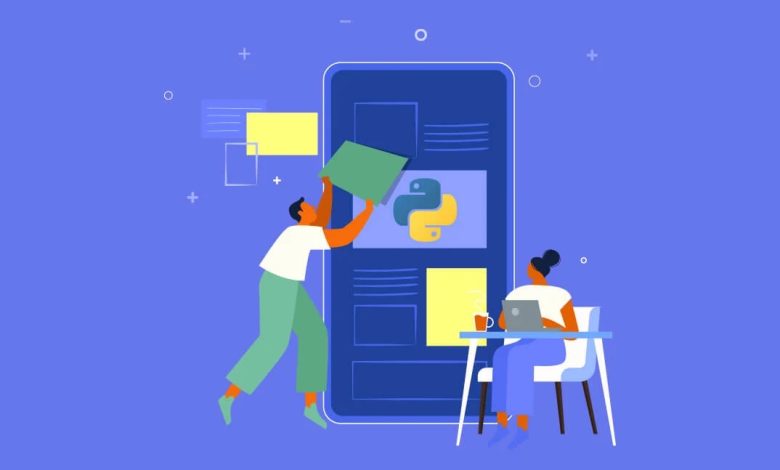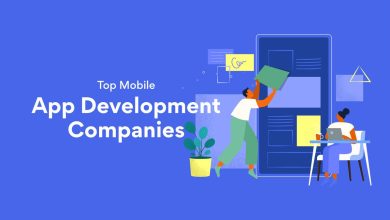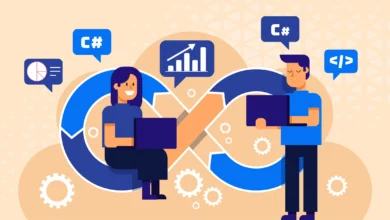Is Python Suitable for Mobile Apps?

The usage of Python in math and science, teaching, web development, and other fields is widespread. But how does Python fair when it comes to creating mobile apps when compared to other options like Swift, Kotlin, or JavaScript? Is Python a good choice for developing mobile applications?
You may learn more about the complexities of creating mobile apps in Python by reading this guide. But first, a little introduction to Python and what makes it so popular with programmers!
Because of the more simpler syntax, developers can learn to write code extremely rapidly. This makes it frequently the programming language that new developers are advised to learn.
Additionally, it can be integrated with other programming languages and is suitable with large data.
Is Python Suitable for Mobile Applications?
Python’s ease of use, readability, and quick development time are what make it so amazing. This is what makes it perfect for the mobile business, where acquiring and retaining a share depends heavily on time to market.
Fundamentally, interpreter-type languages are not supported by iOS or Android. It denotes that Python app cannot be run natively. This explains why making Python apps was uncommon in the past.
But now that numerous frameworks have emerged, things are different. To make the Python software run natively on mobile devices, there are numerous Python GUI frameworks available.
What Type of Apps Can You Develop in Python?
1. Audio-video apps
You can construct audio and video apps, as well as music apps, using Python. Python can be used to investigate online audio and video content. The Python libraries, such OpenCV and PyDub, aid in the success of your app development.
2. Game app development
Python and Pygame allow game developers to quickly produce game prototypes and test them in real time. Python can also be used to create tools for game design that aid in the creation of dialogue trees and level designs.
3. Blockchain Application
It truly rules the market and is one of the most popular technological developments. For developers, creating a blockchain is really challenging, but Python makes it simple.
Python is a simple language that streamlines the development of blockchain applications. In order to communicate with the blockchain over the Internet, developers can use HTTP requests.
The developer will also utilize a Python framework like Flask to build endpoints for various blockchain functionalities. Python can be used by developers to create distributed networks and run scripts across several computers.
4. Command-line apps
The console app and the command-line app are identical. It is a computer software with no graphical user interface that is run from a command line or shell.
Python’s Real-Eval-Print-Loop (REPL) capability makes it the perfect language for these command-line applications. Top app development companies can design command-line apps using a variety of free Python libraries because Python is a well-known language worldwide.
5. Apps for machine learning
Machine learning development is an algorithmic trend that has emerged in the last ten years in technology. It feeds data to operating systems and facilitates intelligent decision-making. Previously, creating a machine learning app was a difficult effort, but Python has made it simpler.
6. Business apps
Python can create a wide range of apps and is pragmatistically agile. Hence, Python also aids in the creation of ERP and e-commerce apps.
Python for Android App
Android prefers Java as its implementation language. Therefore, if you want to develop an Android application in Python, you’ll need a way to run Python code on a Java virtual machine.
Python for iOS Apps
There are a few additional stages involved in creating an app for iOS than for Android. For the most updated information on Python iOS development, consult the official Kivy package documentation.
Often, before your application can be developed using Python/Kivy and delivered using Xcode, a Python environment needs to be set up.
Things to Remember for Python App Development
Python is a very flexible language, but there are a few considerations when using it to create mobile applications.
The expression is evaluated by a dynamic coop. This means that the interpreter looks for variables in both the current block and all of the functions. The issue is that each word needs to be verified in every conceivable circumstance.
Python has restrictions on lambda functions. They must be written on a single line and can only have one statement at a time. As a result, they are unable to employ explicit return statements, unlike conventional functions.
Instead of using a compiler, Python makes use of an editor. Only when the programme is being used will an error become apparent. As a result, the speed drops, and various tests need to be developed.
Wrapping Up
The most adaptable programming language in the world today is Python. Now that there are resources and tools for developing Python apps provided by an app development company, your project can benefit from its simplicity, variety, and flexibility for the creation of mobile apps. It is quick and could help you save both time and money.




